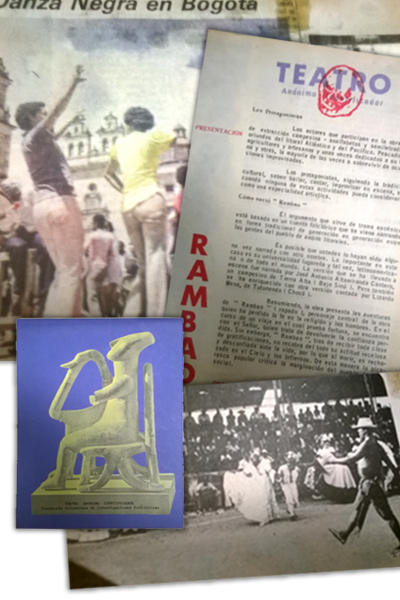Fellows Expanding Access to Colombian Collections
Fellows Expanding Access to Colombian Collections
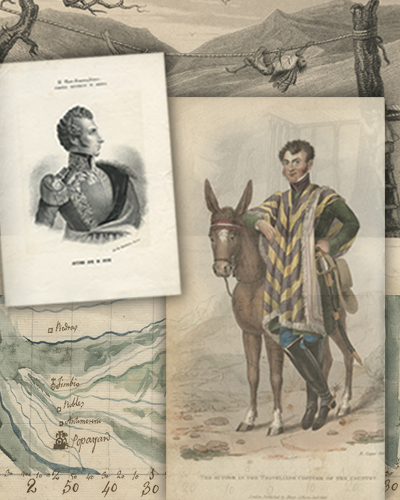
Over the past ten years twelve Library fellows have created online and inhouse exhibits that showcase the library’s rich Colombian collection, one of our signature strengths. Six library fellows have conducted research on the J. León Helguera Collection of Colombiana to date, creating digital exhibits and materials that are being used by students, scholars, and the public in Colombia and other countries. The exhibits trace themes such as Colombian independence movements, early medicine and vaccination, exploration, and modernization and are accessible at Vanderbilt’s Helguera Colombiana database. Similarly, the fellows engaged with the Manuel Zapata Olivella Papers have added rich Colombian content to Vanderbilt’s Zapata Olivella website that highlights Afro-Hispanic and indigenous materials projects have ranged from material on the World Congresses of Black Culture to oral histories and street theater.
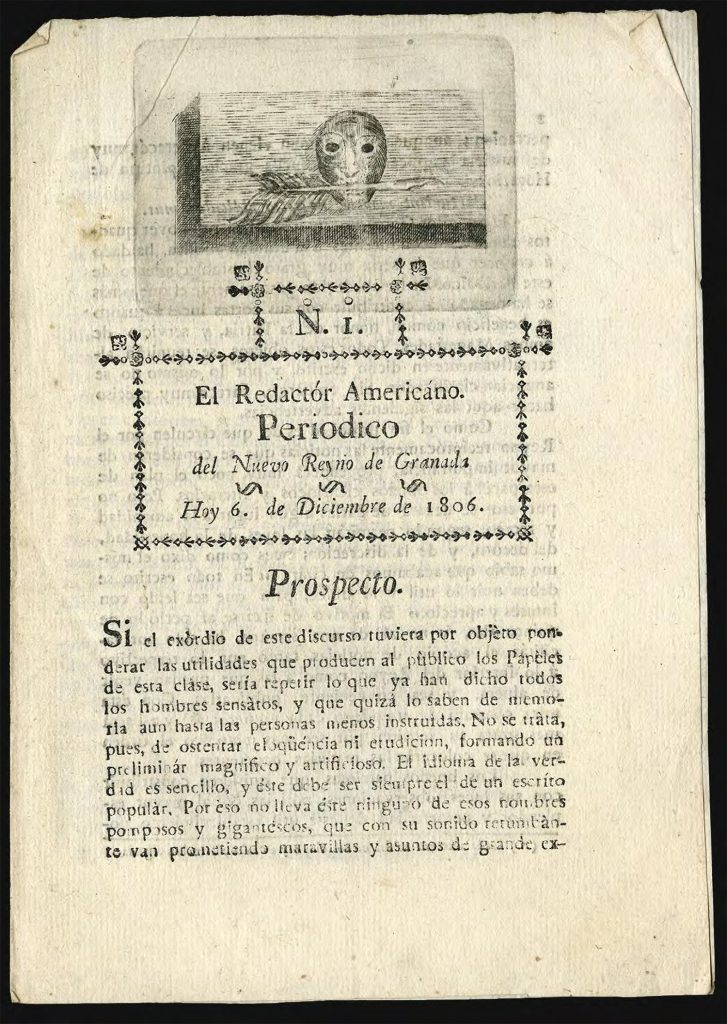
El Redactor Americano del Nuevo Reyno de
6 de diciembre de 1806
J. León Helguera Collection of Colombiana
Vanderbilt University Special Collections
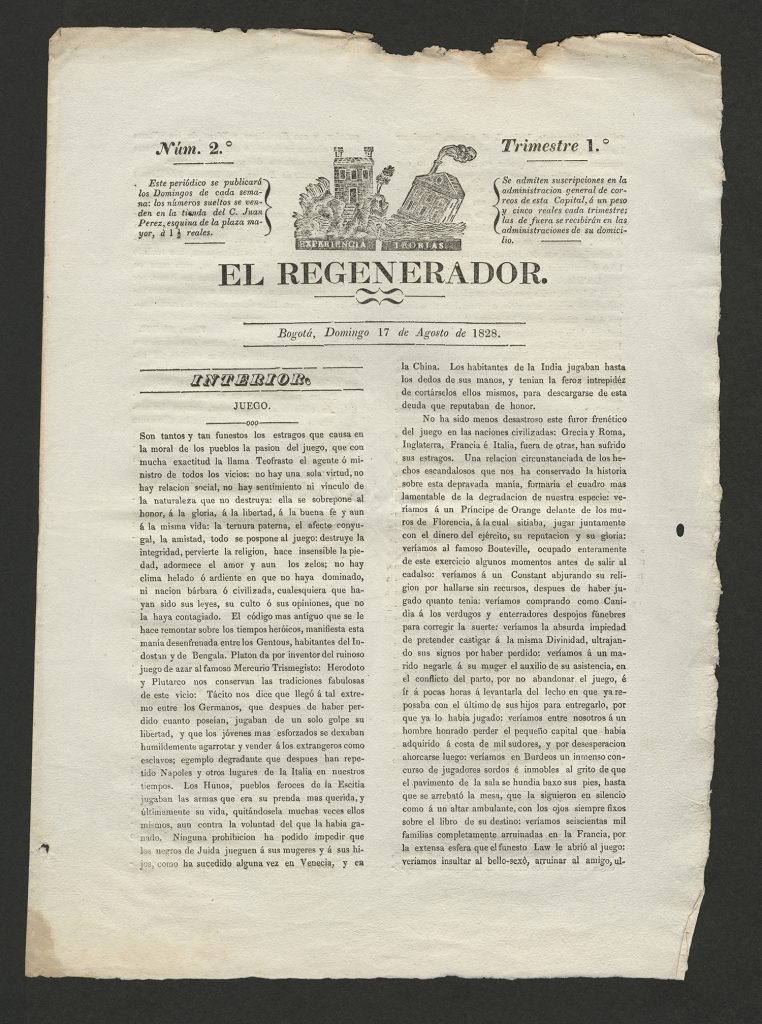
El Regenerador 1, no. 2
Bogotá: 17 de agosto de 1828
J. León Helguera Collection of Colombiana
Vanderbilt University Special Collections
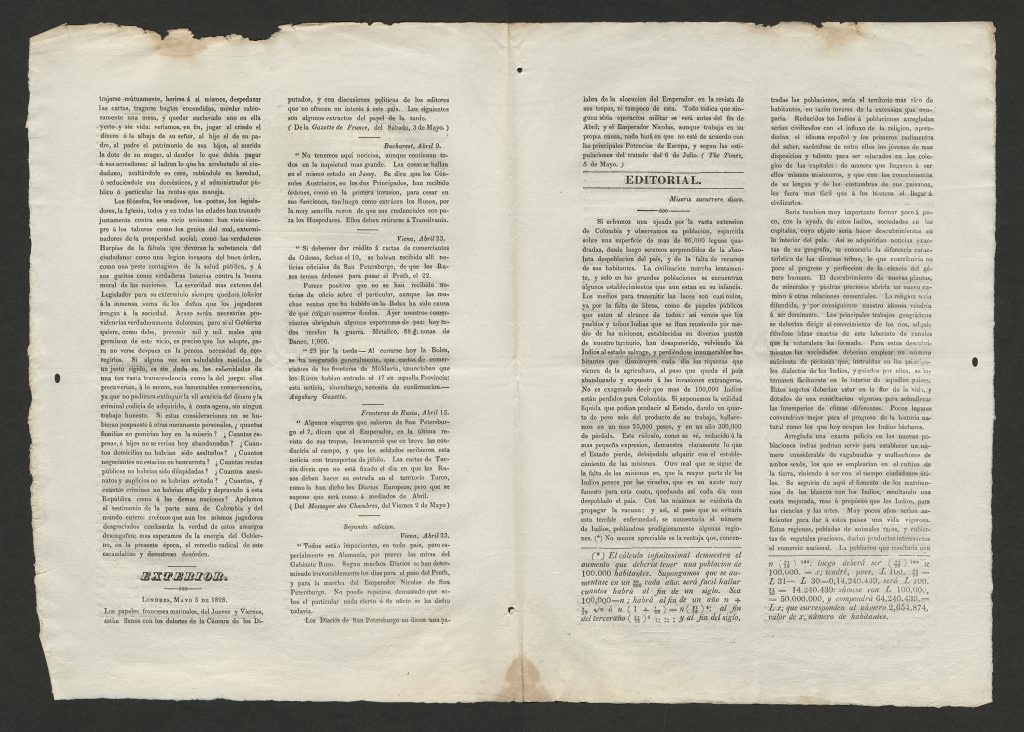
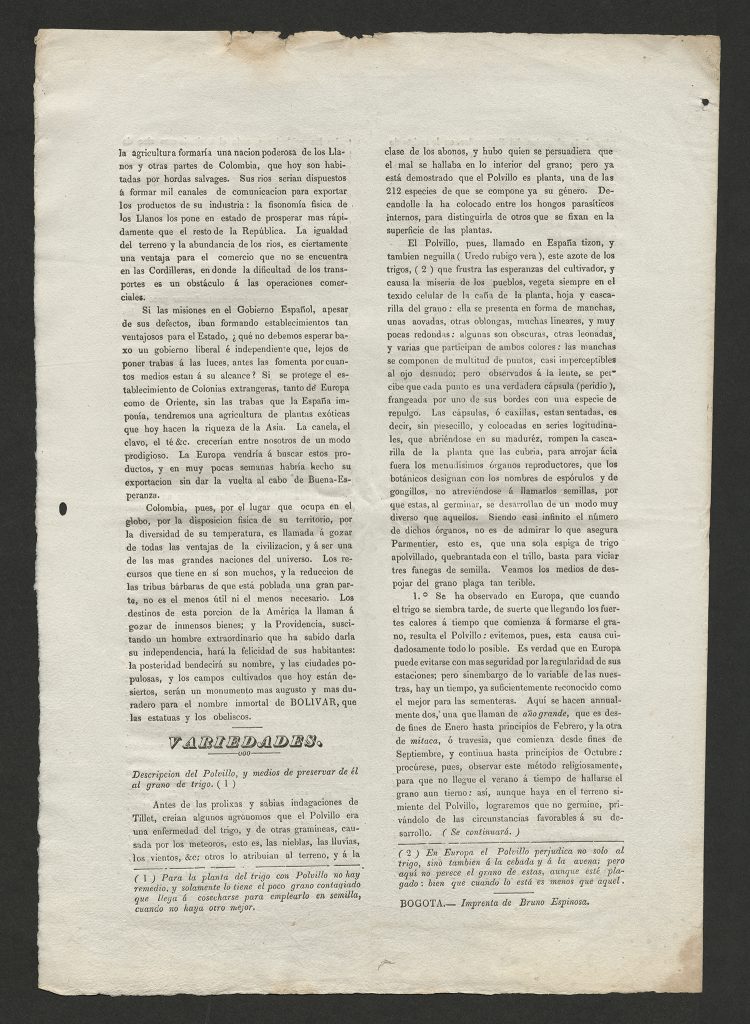
One fellow used early Colombian periodicals and newspapers to trace the smallpox epidemic and vaccination campaigns in Nueva Granada in the early 1800s. She writes: “The vaccine was administered in the city of Bogotá for over 80 days throughout the year of 1812 in order for the public to get vaccinated.” Her research took place in 2017. Prescient!
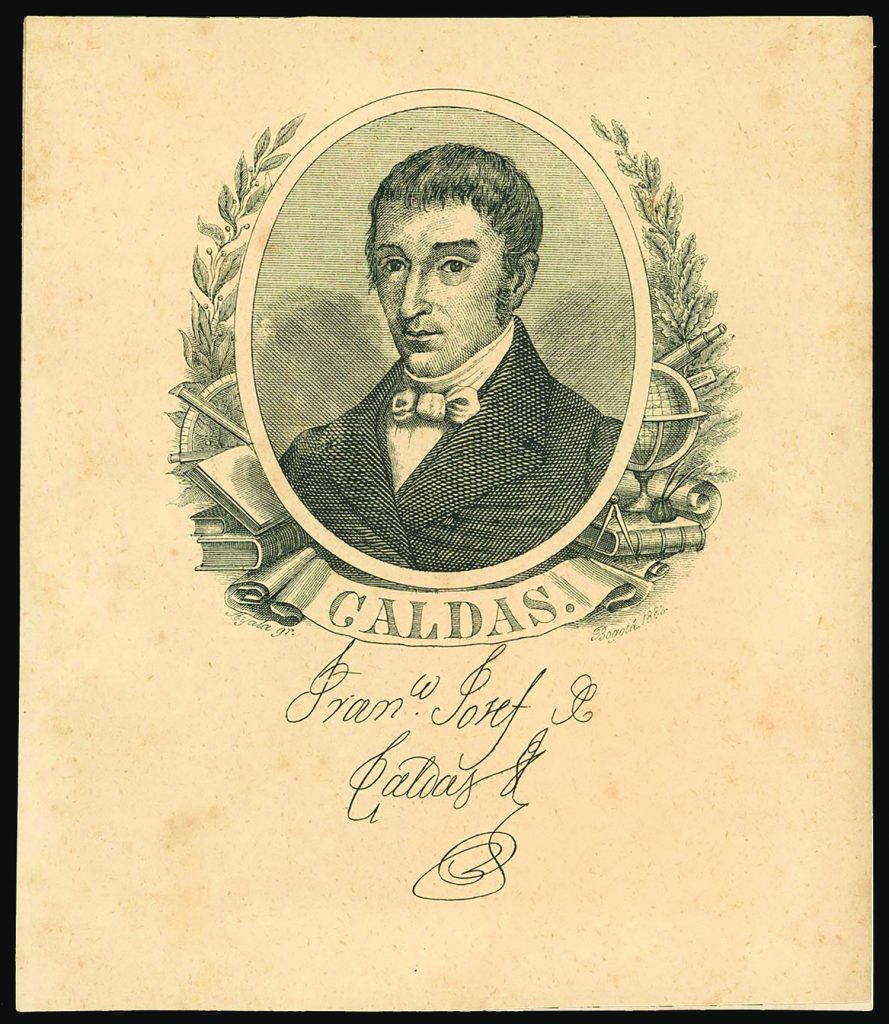
Francisco José de Caldas
Carte de visite
J. León Helguera Collection of Colombiana
Vanderbilt University Special Collections
The Significance of a Map – A Magic Painting
Francisco José de Caldas, an enlightened citizen of the Spanish Kingdom of New Granada, wanted to unite its disparate citizens and reveal to the world Colombia’s many “natural wonders.” According to Colombian scholar, Lina del Castillo, Caldas believed the kingdom’s most pressing need was the creation of a large-scale map. This would bring “travelers, botanists, mineralogists, zoologists, military men, and agriculturalists” and would follow in the footsteps of scientific explorations he had undertaken with Alexander von Humboldt and José Celestino Mutis.
This map “would be a magic painting” and result in construction projects, roads, and canals – even in Panama. It would “foment industry, navigation, education, transportation, and production and extraction of natural resources.” In the early 1800s Caldas clearly saw the problems Colombia would come to face in the 19th century (and beyond) because of the geographic obstacles to uniting the country.
His explorations, scientific inventions, knowledge and writings on astronomy, geography, and natural history took place on behalf of the Crown. Yet he was executed by the Spanish. Many of his maps and botanic and scientific collections were confiscated and sent to Spain. These maps and his “lost” field notes could certainly tell a story of this “father” of Colombian geography.
The library owns what are believed to be his field notes and five of his maps.
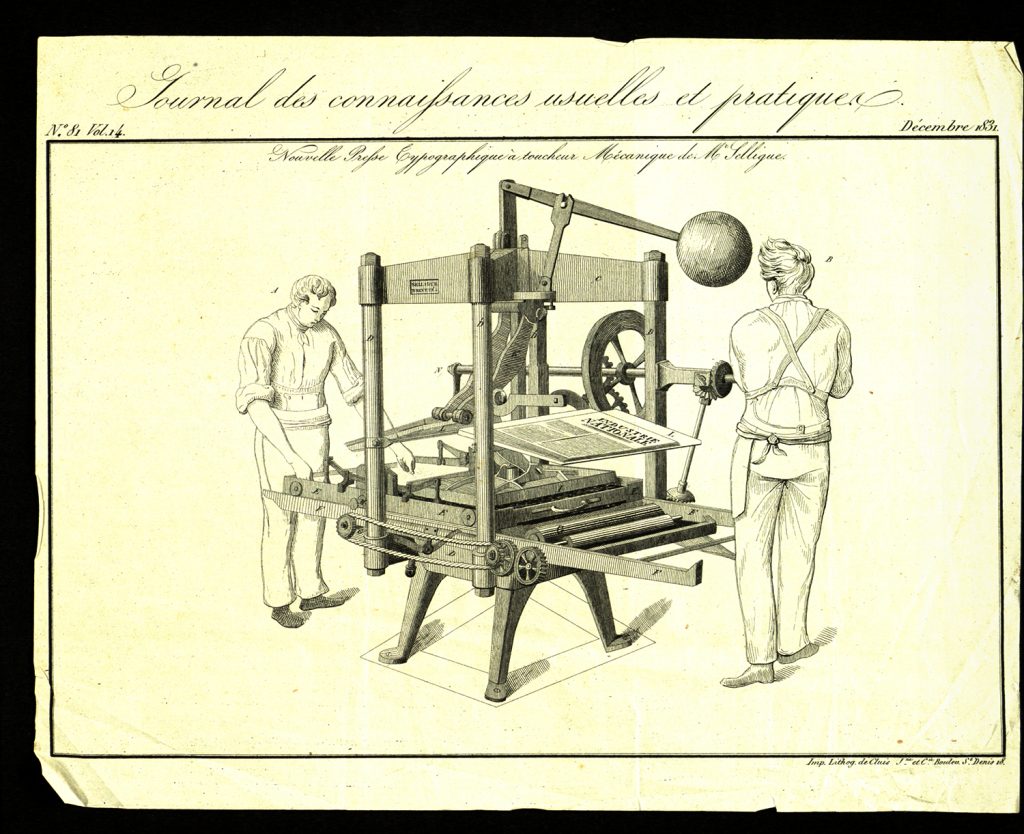
[Early Printing Press] (Plate)
J. León Helguera Collection of Colombiana
Vanderbilt University Special Collections
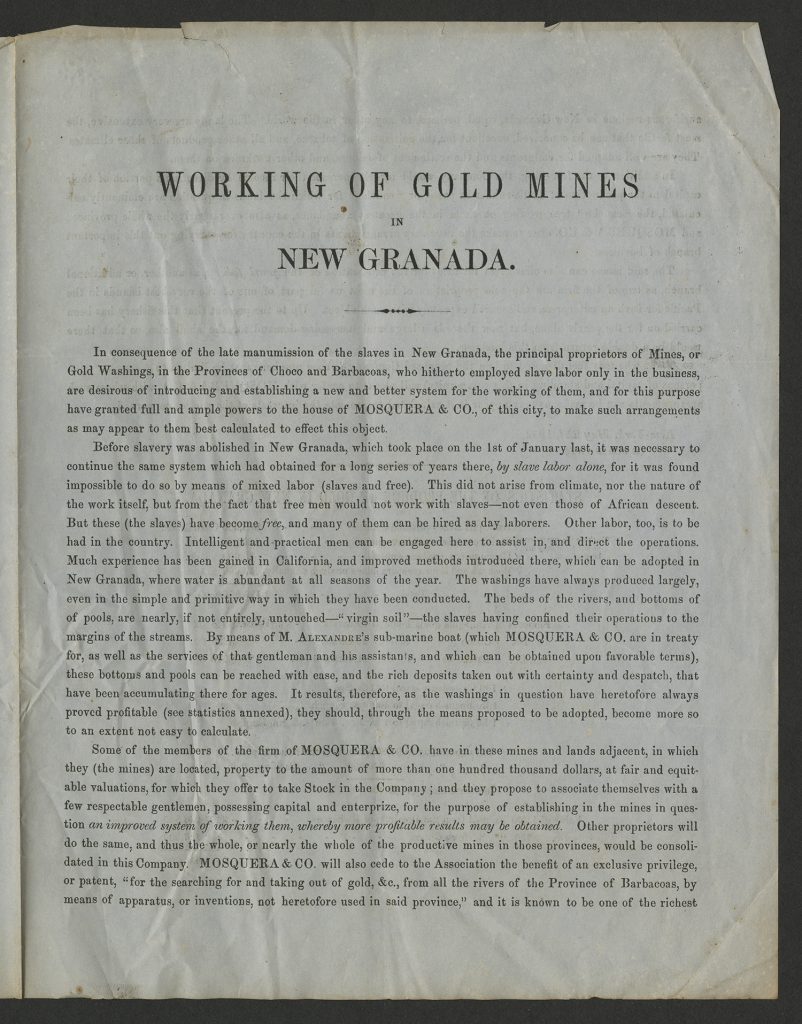
“Working of Gold Mines in New Granada” (Broadside)
NY: 1852
J. León Helguera Collection of Colombiana
Vanderbilt University Special CollectionsBroadsides
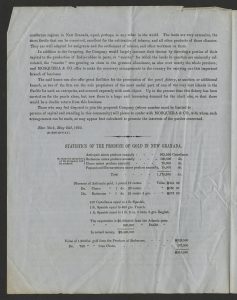
The library owns hundreds of Colombian broadsides from the 19th century. Since many of these flyers were posted on storefronts to announce events and then thrown away, they are rarities. They also reflect social life and customs from operas to circuses to bullfights. There are political diatribes and even disclaimers such as “No, I did not shoot him!”
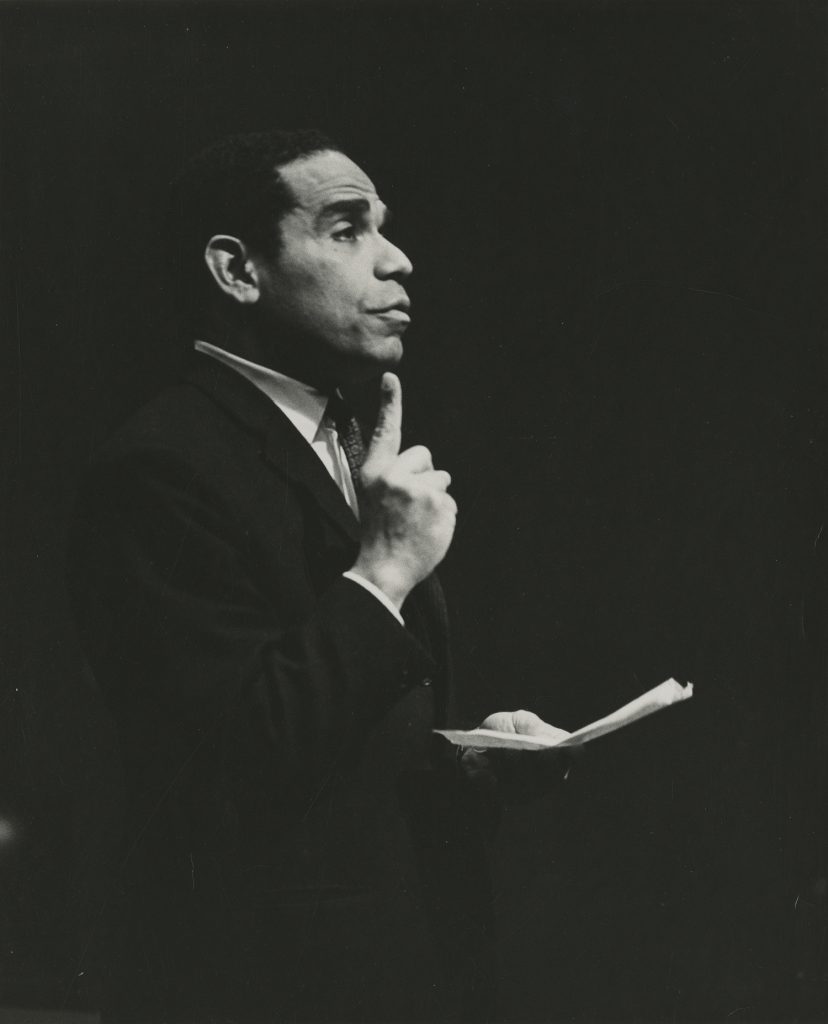
Nereo López
Photograph of Manuel Zapata Olivella
Manual Zapata Olivella Papers
Vanderbilt University Special Collections
Manuel Zapata Olivella, noted Afro-Colombian novelist, anthropologist, folklorist, physician, and playwright was known throughout Latin America as the “Dean of Black Hispanic Writers.” His collection provides a unique window on the history and society of Colombia, especially indigenous and Afro- descended. His extensive ethnographic interviews address the customs, beliefs, and practices of all ethnicities in Colombia. The collection is an exceptional resource for researchers in Latin American and Afro-Hispanic Studies engaged in a variety of fields, including literature, cultural studies, history, folklore, and anthropology.
Fellow Bradley Smith researched and created a website on Colombian street theater that highlighted Afro-Colombian and indigenous rural life. Plays were performed throughout the country under the direction of Manuel Zapata Olivella whose papers are in Special collections. Rambao (1974) was one of the principal plays performed and the theater group was always comprised of locals.
Fundación Colombiana de Investigaciones Folclóricas, 1975
Manuel Zapata Olivella Papers
Vanderbilt University Special Collections
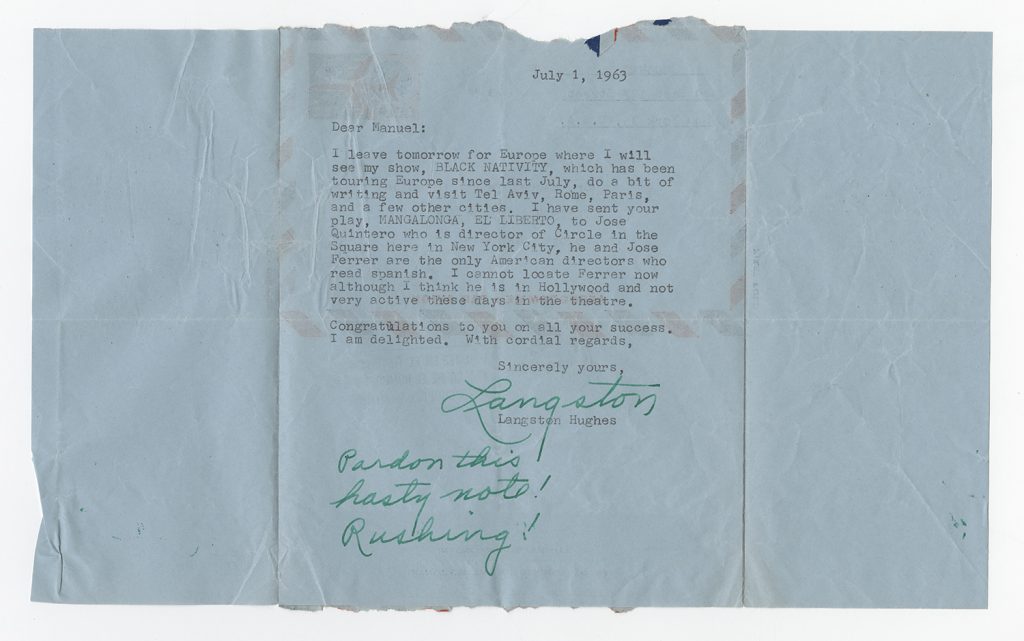
Langston Hughes
[Letter to Manuel Zapata Olivella]
July 1, 1963
Manual Zapata Olivella Papers
Vanderbilt University Special Collections
Manuel met Langston Hughes while traveling throughout the United States in the 1940s. They became fast friends over their lifetimes. Langston, a well-known writer, poet, and leader of the Harlem Renaissance introduced Manuel to intellectuals and activists in New York during the fifties and sixties while Manuel was visiting and lecturing in the US. Both shared their writing and their views on race in the US and globally. One library fellow researched Zapata Olivella’s experiences traveling in the United States.

